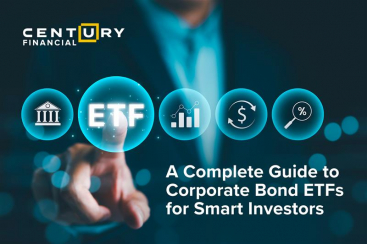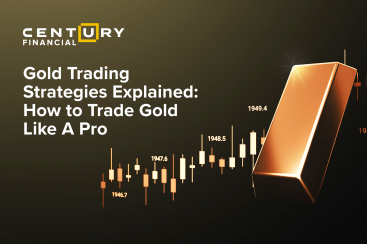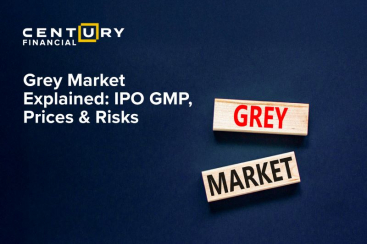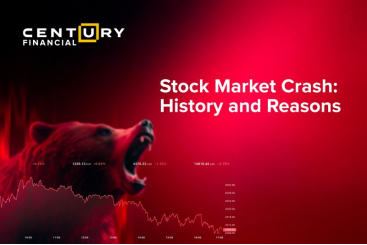Friday, August 25, 2023
Exploring Sukuk Investments: Understanding Islamic Bonds in the UAE Market
By Century Financial in 'Blog'


Synopsis:
Sukuk, or 'Islamic bonds', are gaining prominence in global finance, with the UAE leading the way. Unlike conventional bonds, sukuk represents ownership in Shariah-compliant assets and offers fluctuating returns. The UAE's commitment to Islamic banking and strategic position makes it a hub for sukuk investments.
The world is becoming increasingly interconnected, and financial markets are no exception. One of the most compelling developments in the global investment landscape is the rise of Islamic finance, with sukuk, often called 'Islamic bonds', playing a central role. As one of the key players in Islamic finance, the United Arab Emirates (UAE) has embraced sukuk, providing a compelling platform for investors globally.
Understanding Sukuk
Sukuk, the plural of the Arabic word "sakk", which means a legal instrument, deed, or check, is the financial certificate that serves a similar purpose to the conventional bond in Western finance but adheres strictly to Islamic law, or Shariah.

Difference between Sukuk and Conventional Bonds
Rise of Sukuk in the UAE
| Consideration | Sukuk | Conventional Bonds |
| Ownership | Represents the investors’ ownership interest in the underlying Sukuk asset, business, enterprise, or project, which entitles them to receive a share of the income generated. | Evidence of an interest-bearing debt the issuer owes to the bondholders |
| Underlying Asset | The asset on which Sukuk is based must be Shariah-compliant. | Used to finance any asset, project, or business |
| Pricing | Priced according to the value of the assets backing them | Pricing is based on credit rating, i.e., the creditworthiness of the issuer without any specific asset to be relied upon |
| Returns to investors | Returns on Sukuk can increase in value when the underlying assets rise in value. | Returns from bonds are based on fixed interest. |
The UAE has been a frontrunner in the Islamic finance industry. The nation's strong commitment to Islamic banking, combined with its robust financial regulations and strategic geographic location connecting East and West.
Issued by the Ministry of Finance in collaboration with the Central Bank of the UAE, the dirham-denominated T-sukuk will help the emirate diversify its financing resources and strengthen the local financial and banking industry.

Today, over 20 countries in Europe, Asia, the Middle East, and Africa have issued corporate or sovereign Sukuk, with Malaysia and the United Arab Emirates at the forefront. Other countries include Bahrain, Indonesia, Iran, Qatar, Kuwait, Pakistan, Saudi Arabia, Singapore, Somalia, Turkey, Brunei, the UK, Hong Kong, Egypt, Ivory Coast, Senegal, Gambia, South Africa, and Nigeria.
Let’s dive deep into some concepts.


The Future of Sukuk Investments in the UAE
The future of Sukuk investments in the UAE looks exceptionally bright. One significant factor is the growing interest in ethical and sustainable investments, where Islamic finance, in general, and sukuk investments, in particular, have a natural advantage.

Navigating Sukuk Investments in the UAE
For those looking to diversify their investment portfolios, sukuk investments present a compelling opportunity. However, as with any investment, understanding the nuances of the market is vital. This includes comprehending the structure of Sukuk bonds, the underlying assets, the issuing body's creditworthiness, and the dynamics of the UAE's financial market.
This marketing and educational content has been created by Century Financial Consultancy LLC (“Century”) for general information only. It does not constitute investment, legal, tax, or other professional advice, nor does it constitute a recommendation, offer, or solicitation to buy or sell any financial instrument. The material does not take into account your investment objectives, financial situation, or particular needs.
The opinions expressed by the hosts, speakers, or guests are their own and may change without notice. Information is based on sources we consider to be reliable; however, Century does not guarantee its accuracy, completeness, or timeliness and accepts no liability for any loss arising from reliance on this content.
Trading and investing involve significant risk, and losses may exceed initial deposits. Past performance is not indicative of future results. CFDs and other leveraged products are complex instruments that may not be suitable for all investors. Please ensure you understand how these products work, the associated risks, and seek independent professional advice if necessary.
Century is licensed and regulated by the UAE Capital Market Authority (CMA) under License Nos. 20200000028 and 301044.
Please refer to the full risk disclosure mentioned on our website.









.png)
.png)
.png)
.png)


